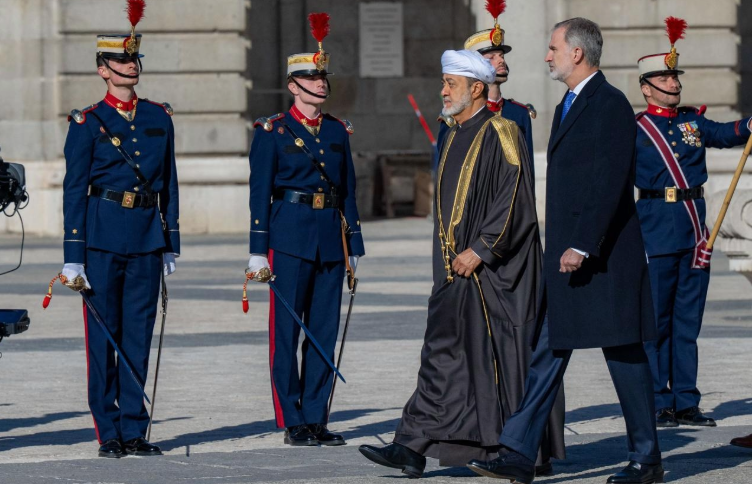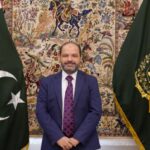In an era when nations are redefining their relationship with markets and societies, Oman stands out as a country that has quietly but confidently embraced reform through reason, freedom, and responsibility.
Under the wise leadership of His Majesty Sultan Haitham bin Tariq, the Sultanate continues to evolve its economic structure toward openness, diversification, and empowerment. This direction, though deeply rooted in Omani traditions, echoes one of the most significant philosophies in modern political economy — Libertarianism, a belief in individual liberty, limited government, and the creative energy of free enterprise.
Libertarianism emerged as a moral and economic philosophy built on the conviction that individuals are inherently capable of managing their own lives when protected by justice, property rights, and the rule of law.
Read More
- His Majesty Sultan Haitham: The light that leads Oman forward
- Sheikh Salim Al Araimi: A titan who built with vision, led with humility, and lived with purpose
- A Life in Flight, A Love Beyond Time
- Trump was once laughed at on the UN stage. Now, world leaders are courting him
- Oman and India: A strong bond in the growing world of medical tourism
Thinkers such as John Locke and Adam Smith laid their philosophical foundations, while Friedrich Hayek and Milton Friedman gave it modern economic expression.
Friedman once wrote, “A society that puts equality before freedom will get neither. A society that puts freedom before equality will get a high degree of both.” This statement captures the essence of Oman’s gradual transition toward a model that values both economic freedom and social balance.
Over the past few years, Oman has embarked on a series of reforms that reflect confidence in individual initiative and market efficiency. The government’s focus on diversification through Oman Vision 2040, the privatization of state-owned enterprises, and the encouragement of private-sector partnerships demonstrate a clear understanding that lasting prosperity arises when the government becomes an enabler rather than the sole provider.
These reforms may not bear the explicit label of Libertarianism, yet they embody its spirit — the belief that the state’s primary duty is to create conditions in which people and enterprises can thrive.
Milton Friedman observed in Capitalism and Freedom, “The great advances of civilization have never come from centralized government.” Oman’s modern reforms mirror this wisdom.
The state’s decision to open doors to local and foreign investors, expand the role of entrepreneurs, and stimulate small and medium enterprises (SMEs) reveals a strategic shift toward shared responsibility between the public and private sectors.
Fiscal discipline, the rationalization of subsidies, and the careful introduction of new tax policies are not simply economic adjustments; they represent a philosophical reorientation toward sustainability and accountability.
The Sultanate’s growing international engagements further highlight this vision of freedom balanced with cooperation. His Majesty Sultan Haitham bin Tariq’s recent official visit to the Kingdom of Spain marked a new chapter in Oman’s international economic relations.
The discussions held with Spanish leaders focused on trade, investment, renewable energy, tourism, and technology — sectors where both nations share mutual interests. The visit underscored Oman’s commitment to building partnerships based on respect, innovation, and mutual growth rather than dependence. In a sense, it exemplified the Libertarian idea of voluntary exchange: nations, like individuals, prosper when they interact freely and fairly for mutual benefit.
Yet Oman’s path remains distinct from the pure libertarian models found in Western discourse. While Libertarianism advocates minimal state intervention, Oman’s policy of reform reflects a balanced pragmatism — a belief that the state must still safeguard equity, ensure education, and support those in need.
The government’s continued investment in infrastructure, healthcare, and education shows that freedom in the Omani context is not abandonment, but empowerment. The state remains a guardian of opportunity and fairness, ensuring that economic freedom strengthens social unity rather than eroding it.
Friedman also reminded us that, “The preservation of freedom is the protective reason for limiting and decentralizing governmental power.” In this light, Oman’s ongoing administrative restructuring, decentralization initiatives, and regional development programs align closely with that principle. The creation of investment zones, the empowerment of governorates, and the fostering of local entrepreneurship all demonstrate how freedom and accountability can coexist. This decentralization does not weaken the state; it strengthens it by multiplying its centers of productivity and innovation.
In the broader perspective, Oman’s approach to governance and economy illustrates that freedom and responsibility are not opposites but complementary virtues. By trusting its citizens and institutions, the Sultanate is cultivating an environment where creativity, honesty, and enterprise can flourish.
The government’s encouragement of youth entrepreneurship and digital innovation represents faith in the individual — the same faith that lies at the heart of Libertarian thought.
Oman’s progress is not merely economic; it is philosophical. It redefines the role of the state, the citizen, and the market in a modern Arab context. In celebrating this progress, one recalls Friedman’s insight that freedom is both the means and the end of economic development.
The Sultanate’s journey affirms that principle: by empowering its people, respecting enterprise, and embracing openness, Oman is proving that liberty, guided by wisdom, leads to stability and prosperity.
In the end, the story of Oman and Libertarianism is not about ideology but about balance — between state and market, between tradition and modernity, between freedom and duty. And in this balance, Oman is crafting its own narrative of renewal, one that others may one day look to as a model of how thoughtful reform and responsible freedom can build a stronger nation.







